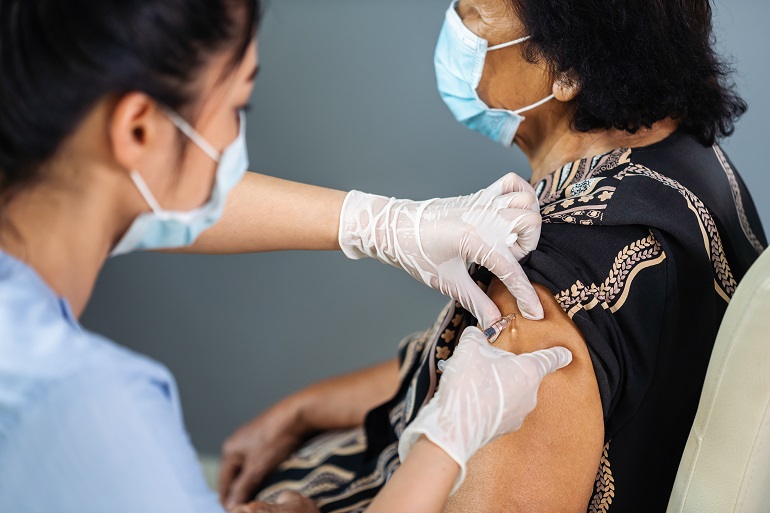
The Wayne State University School of Medicine is seeking 300 volunteers to enroll in a Phase 3 clinical trial of a COVID-19 vaccine candidate manufactured by Novavax Inc.
The physicians conducting the clinical trial need large numbers of participants, especially people 65 and older, those with underlying medical conditions, and people of racial and ethnic groups that have been impacted in greater numbers by the pandemic, including African Americans, Latinx, Asian Americans and Native Americans.
Two out of three people participating in the clinical trial will receive two intramuscular injections of the vaccine candidate spaced three weeks apart. The vaccine candidate is designed to prevent COVID-19 by helping create neutralizing antibodies to fight the infection. The remaining one-third of participants will receive injections of a placebo of saline (sterile salt water) solution.
All participants will be randomly selected to receive the vaccine candidate or placebo. Participants will be followed for 24 months post-vaccination to monitor their health and safety. Volunteers should contact the principal investigator, Elizabeth Secord, M.D., professor of Pediatrics, at ae8701@wayne.edu. Participants, especially those deemed high risk for COVID-19 infection, should not be high in line for other available vaccines.
“We are fortunate to be able to offer this opportunity in Detroit, which has been particularly struck hard by the pandemic,” Dr. Secord said. “The initial phases of the trials have been promising. We hope to further test the vaccine candidate in segments of the population that have been identified as high risk to infection by COVID-19.”
Study volunteers will be seen initially at Wayne State University’s Integrative Biosciences Center, or IBio building, 6135 Woodward, Detroit.
The Novavax COVID-19 vaccine candidate, NVX-CoV2373, is a stable prefusion protein engineered from the genetic sequence of SARS-CoV-2, the virus that causes COVID-19. The vaccine was created using the company’s recombinant nanoparticle technology to generate the antigen derived from the coronavirus spike protein. It contains Novavax’s patented saponin-based MatrixM™ adjuvant to enhance the immune response and stimulate high levels of neutralizing antibodies.
In August 2020, Novavax completed the Phase 1 portion of the randomized, observer-blinded, placebo-controlled trial of the vaccine candidate with and without Matrix-M™ adjuvant at two sites in Australia. The trial evaluated two doses of the vaccine in 131 healthy adults ages 18 to 59 years. The recombinant vaccine was generally well-tolerated and elicited robust antibody responses numerically superior to that seen in human convalescent sera, company officials said.
The Phase 3 clinical trial will enroll up to 30,000 at up to 115 sites in the United States and Mexico. The WSU site and clinical trial will be overseen by Dr. Secord, and co-investigators Eric McGrath, M.D., associate professor of Pediatrics, Infectious Diseases, and Phillip Levy, M.D., M.P.H., professor of Emergency Medicine and assistant vice president of Translational Science and Clinical Research Innovation for Wayne State University.
This pivotal phase 3 clinical trial will evaluate the efficacy, safety and immunogenicity of NVX-CoV2373. The trial builds on research from Phase 1 and 2 studies demonstrating that the vaccine provoked a robust immune response, generated highly neutralizing antibodies against the virus and was generally well-tolerated.
Novavax is progressing large-scale manufacturing of the vaccine.
“We are encouraged by the data generated to-date on NVX-CoV2373 and are optimistic about our ability to positively build on the body of evidence with this trial,” said Gregory Glenn, M.D, president of Research and Development for Novavax. “We recognize that volunteers considering our trial may have questions about the potential impact on their ability to receive an authorized vaccine when it becomes available to them. We wish to reassure participants that we are working to ensure that their involvement in our trial does not negatively impact their ability to be vaccinated at the appropriate time.”